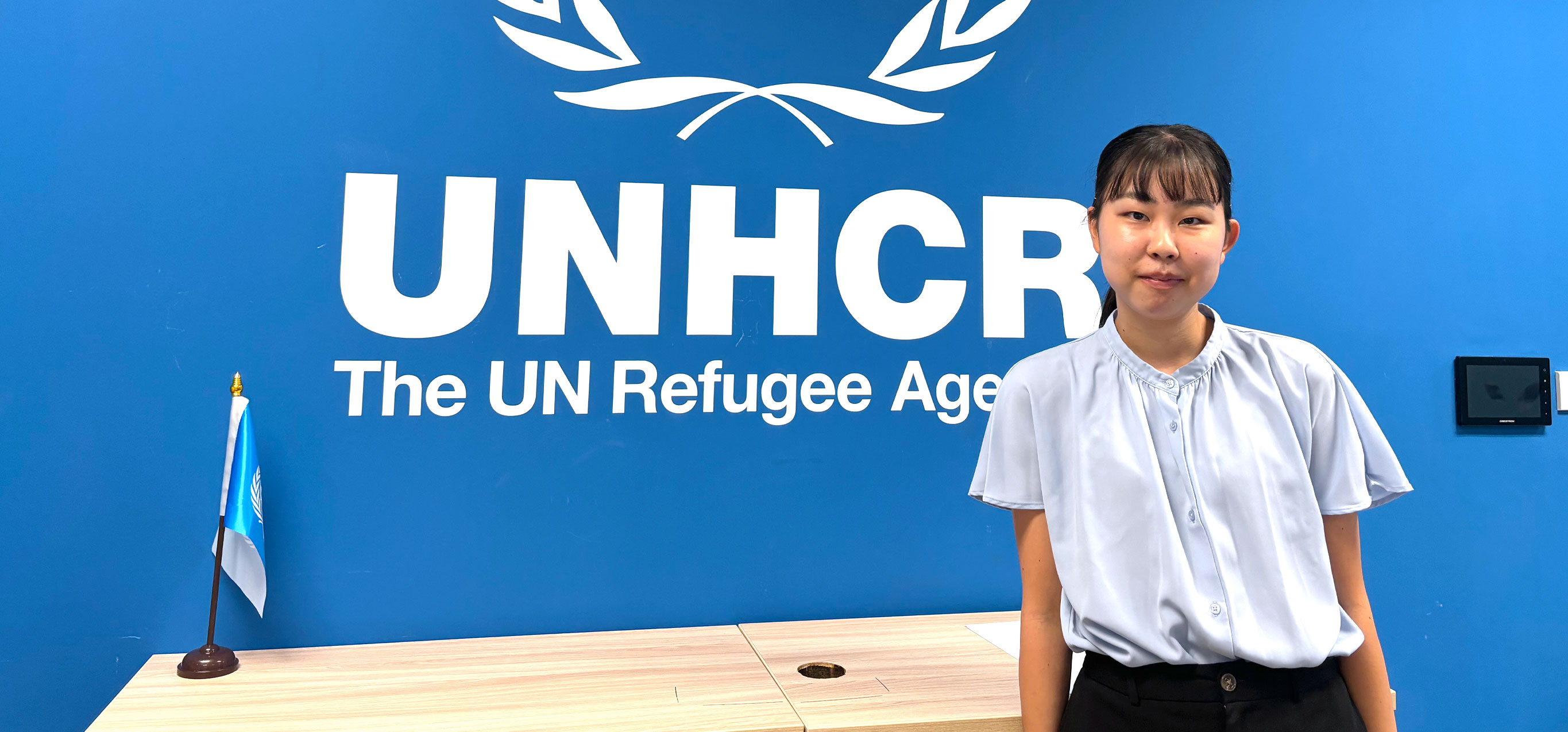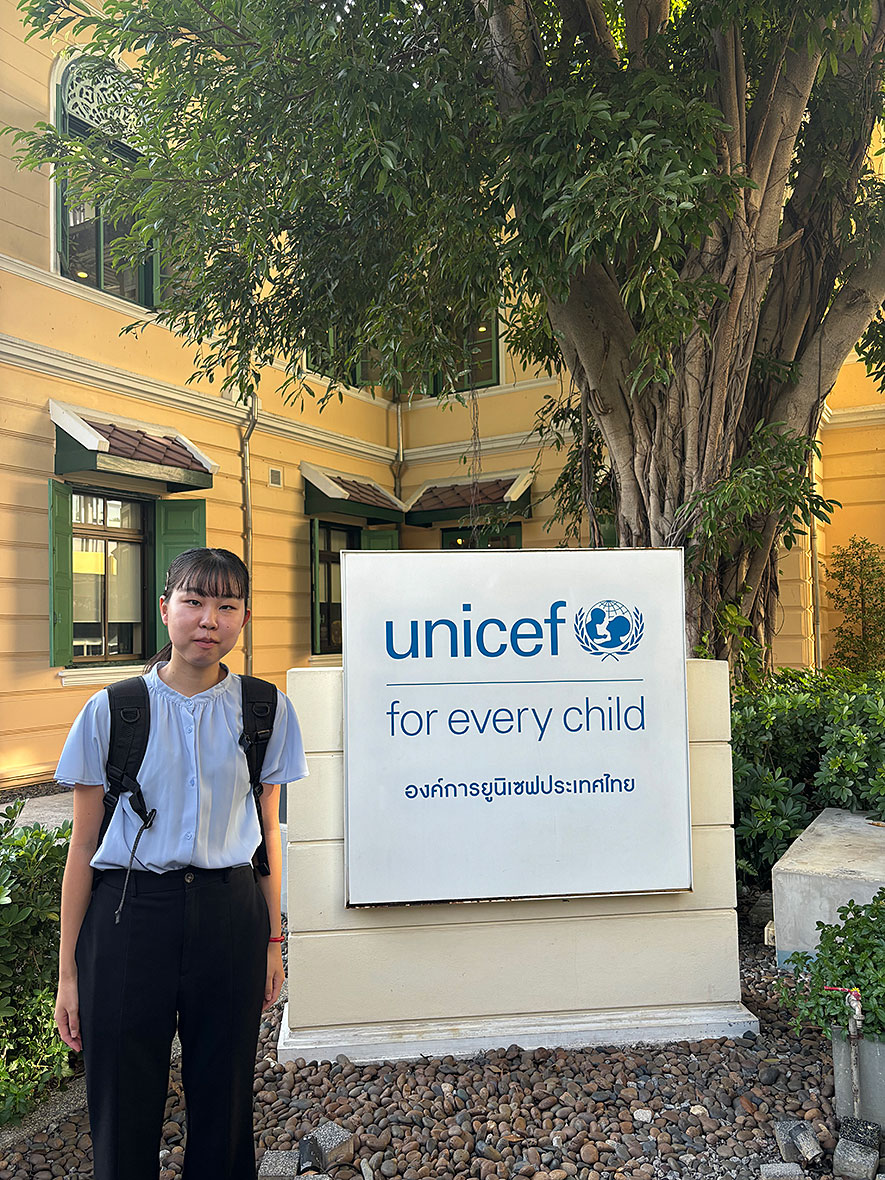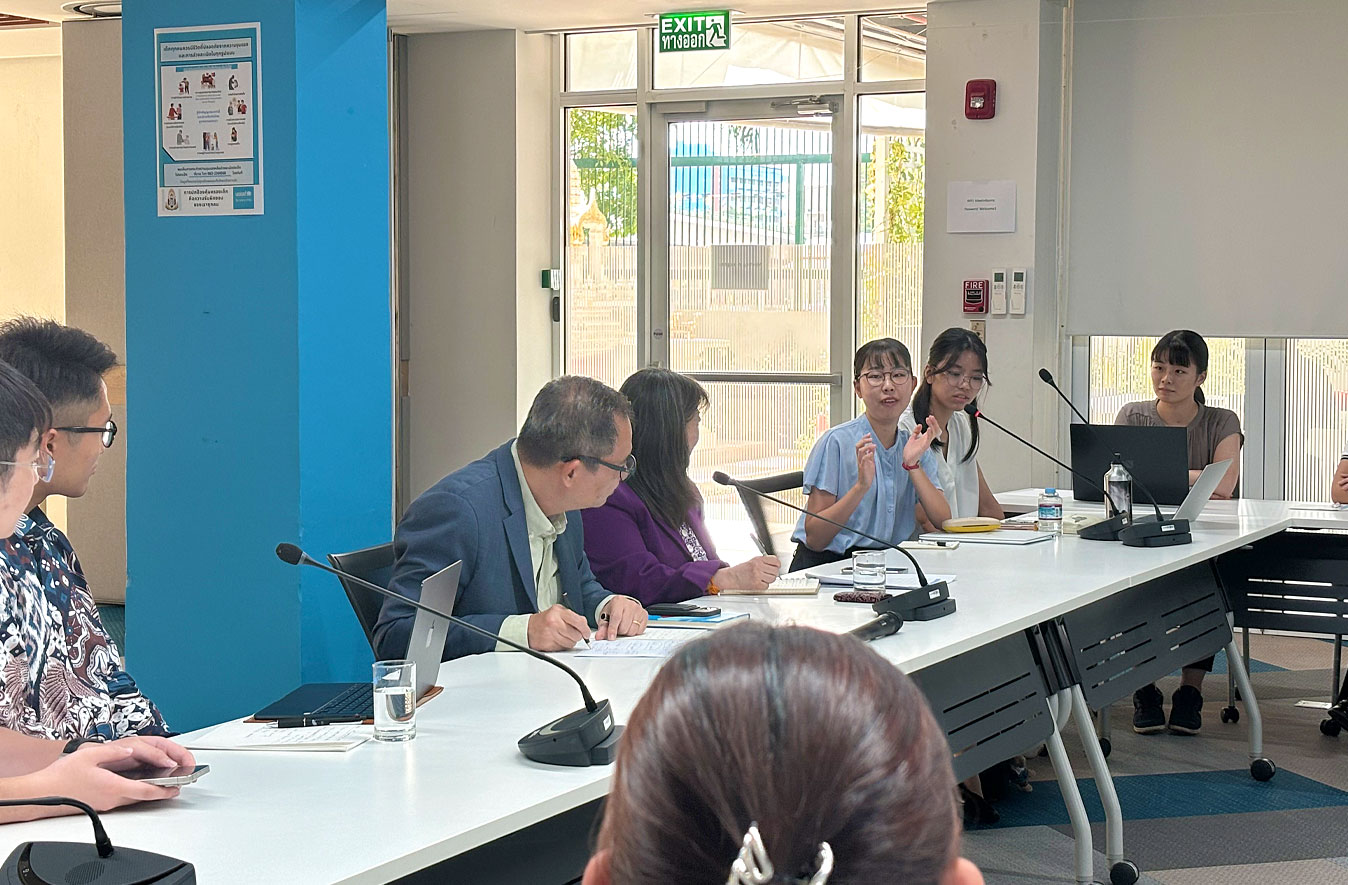
After participating in the Thailand Bangkok Training Program, I felt once again that working for an international organization is the career I would like to pursue. I want to work with them to create a better world.
KURIMOTO Hiyori
Fourth-year International Relations Major
We interviewed KURIMOTO Hiyori about her participation in the 'Thailand Bangkok Training Program'. We asked her about what she learned, what she found memorable, and what she thinks about her future after having this experience.
Please tell us why you applied to the College of International Relations.
KURIMOTOI wanted to study in the IR because I was interested in problems in developing countries, and how we can solve those problems. Since I had such an interest, I wanted to take classes such as peace, poverty, and international cooperation. IR has four clusters to learn the specific field, but I can still take classes outside of my cluster based on my interest, so that was very fascinating for me.
Please tell us what motivated you to participate in the 'Thailand Bangkok Training Program'.
KURIMOTOI aspire to work in International Organizations in the future, and I thought participating in this program would be very precious and meaningful to get more knowledge of issues from the UN perspective. In addition to that, I wanted to stay motivated to work in the UN by knowing their experiences and talking with them directly feeling their passion.

What did you learn or find particularly impressive during the program?
KURIMOTOIn UNHCR, an officer gave us a presentation about forced displacement. I had some knowledge of refugees and International Displaced People (IDP), but I learned a lot. One thing I learned from the presentation was the difficulty of working with the government. The Thai government did not sign the 1951 Convention and 1967 Protocol which were the cornerstones of refugee protection. While UNHCR encourages the government to sign this Convention and Protocol, it still takes time, and in fact, there are 89,000 refugees and asylum-seekers in Thailand.
I was also impressed by her explanation of stereotypes toward refugees. In Japan, and maybe other countries too, we often hear some opinions about refugees such as threatening peace and taking our jobs in the context of accepting them. However, UNHCR thinks those are stereotypes that need to be changed. I felt that is how UNHCR works to make refugees build a better future.
Outside of the presentation, I learned the severity of working at UNHCR. Without visiting here, I would just dream of the beauty of helping people in need. It was a precious opportunity to experience real life at the UN. But still, her words are touching. She said that no matter how hard her work was, she felt she changed someone’s life a little bit when she went to bed every day. I will keep her words in mind to keep my motivation.
KURIMOTOAt ESCAP (Economic and Social Commission for Asia and the Pacific), we had a wide variety of briefing sessions. Since ESCAP works for SDGs, each presenter gave us a briefing about many topics such as environmental action, investment for gender, and demographic transition. What they had in common was they put focus on partnership. They collaborate with other UN agencies, the government, private companies, and academia. ESCAP intermediates each actor, and I strongly felt the importance of the neutrality of the UN in tackling SDGs.
Also, we had enough time to learn how to pursue a career in the UN. To be a part of working at the UN, there are many options. We got information that we had not known before, so it was a great opportunity.
By participating in the session in ESCAP, I realized no one has the same background. That was a huge takeaway for me. Before I met them, I thought I needed to go through a certain step to be an international servant. However, now I know there is always some chance that I can use my background to be in the UN and not have to follow the common way.

Please tell us what you would recommend to other students about this program.
KURIMOTOOne recommended point is you have a chance to talk with staff in person. They told me not just official information, but also information based on their experience. You will have nice opportunities to know the reality of the organization. I recommend this program to both those who just started to become interested in working in international organizations and those who are thinking of a career in the UN seriously. Unless you visit there and talk with staff, you never know what it’s like working at the UN. Since you are in the IR facility or might be here in the future, you have a chance to take advantage of it in front of you. I think that’s very privileged.
How do you plan to use what you have learned in the program to your future activities?
KURIMOTOThis experience makes me feel that this is one of the careers that I would like to pursue. Knowing people who work passionately at the UN, I would also like to work with them to create a better world. However, I realize there is a huge gap between me and the UN. So, this experience also made me feel I needed to put more effort into it.

October 2024
MORE INTERVIEWS
-
Bridging Japan and the US through International Relations and Language – My Four Years in the JDP and My Global Future
INADA Mimi
Fourth-year Joint Degree Program (RU-home)2025.2.25
studentlife|academics|studyabroad|jdp|
-
While technical knowledge and job-required skills can be learnt after being on the job, some skills, such as communication, presentation, data analysis, and visualization, are the skills I was able to learn from my time at Ritsumeikan.
Pranjal Modi
RIMOWA (Global Studies Major Alumnus 2022)2025.2.4
alumni|
-
Zemi Research Convention 2024“The Integration of Human Rights into International Environmental Law and its Implications”
Ochi Seminar
(team name: Environmental Justice Analysts)2025.1.6
academics|openseminar|
-
Zemi Research Convention 2024“Are Israel's actions in Palestine considered self-defence”
Ochi Seminar
(team name: The Prosecutors)2024.12.25
academics|openseminar|
-
This supportive community empowers you to step out of your comfort zone and take on numerous challenges throughout your university life.
SUZUKI Tomoya
SAP (International Relations Major Alumnus 2018)2024.12.11
alumni|
-
Surrounded by diversified nationalities of colleagues and external business relationships, this was essentially similar to what I experienced while studying in the College of International Relations.
Joyce Lo
Mindshare (Global Studies Major Alumnus 2017)2024.12.10
alumni|